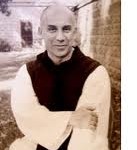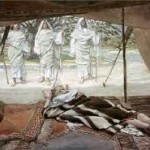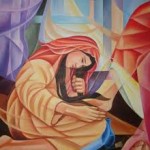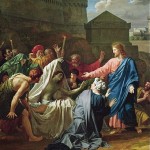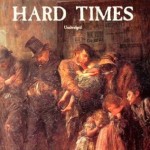Seventeenth Sunday in Ordinary Time – Cycle C
I ran across this wonderful insight about prayer in this month’s Give us This Day, the daily devotional published by Liturgical Press. In the reflection posted for this weekend, Sister Miriam Pollard remarks that prayer is letting God in, so we can let ourselves be the prayer we already are.
I love that. It makes me wonder what kind of prayer I am, or you are. The prayer we are isn’t something we invent through discipline and fasting. It’s our particular prayer DNA, the unique tapestry of our individual connection with the Divine. It’s the information a stranger gets about us without either of us being aware of it—that unnamable grace that goes out from people that makes us feel safe in God’s love .
Thomas Merton once said, “There is no way of telling people they are walking around shining like the sun.” I understand that now. There is no way of describing to people the prayer that they are, the prayer that they bring us to when we are in their presence.
Many years ago I met with a grieving widow as we planned her husband’s funeral. We chose the hymns and the readings, and eventually I asked her if there was anyone in the parish whom she would like to ask to be the Eucharistic Minister at the Mass. Her answer was illuminating.
“Do you know the woman who comes in the side door every Sunday, helping her husband in the wheelchair? Could you ask her if she would serve at my husband’s funeral? I don’t know her name.”
Who needs names when we can identify each other by the prayer we are?
How would people describe the kind of prayer you are?

